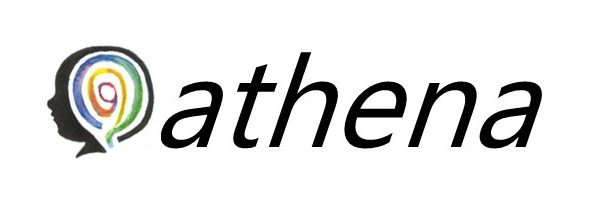About ATHENA
The ATHENA project is funded by the European Commission under a call for improving test methods for the detection of chemicals that can disrupt the normal functioning of hormone systems, called endocrine disruptors.
ATHENA focuses on substances that disturb the thyroid hormone system. Apart from regulating many body functions in adult life, thyroid hormones are essential for healthy brain development during pregnancy and after birth. They control the division of neuronal cells, their proper development and migration. If the delivery of thyroid hormones to the baby’s brain is insufficient or disturbed, irreversible brain damage (manifesting as e.g. low IQ scores) may be the consequence. During the key stages of brain development, the foetus cannot yet produce thyroid hormones and is therefore entirely dependent on sufficient supply from the mother. However, some mothers are deficient in thyroid hormones, due to medical problems or to undersupply of iodine, a key component of thyroid hormones. Certain chemicals can also diminish the uptake of iodine into the thyroid (e.g. thiocyanates in cigarette smoke), whereas others can block hormone synthesis in the thyroid gland or displace the hormone from distributor proteins in the blood (e.g. flame retardant chemicals). If this happens during pregnancy, development of the baby’s brain may be compromised.
It is therefore essential that chemicals capable of disrupting thyroid hormone supply are detected before damage occurs. There are however serious gaps in our arsenal of test methods for identifying such chemicals. In particular, there is a lack of methods for finding chemicals that adversely affect brain development. Much is also to be done for method development to pinpoint disruption of thyroid hormone transport from the mother to the baby.
The ATHENA consortium will close these gaps by developing new methods for incorporation into existing international (OECD) test guidelines. We will:
- Focus on tests that can capture the consequences of maternal thyroid hormone deficiency on the developing brain.
- Provide new test methods for chemicals that interfere with the delivery of thyroid hormones to the foetus across the placenta, the blood brain barrier and the blood brain cerebrospinal fluid barrier.
- Develop predictive methods (quantitative structure-activity relationships; QSARs) for the screening of large compound libraries and methods for capturing disruption of the local supply of thyroid hormone by inhibition of deiodinases, dehalogenases and cell membrane transporters.
- Construct networks of pathways for adverse neurodevelopmental effects. Based on such networks, we will deliver a comprehensive testing strategy that can protect from chemicals harmful to brain development in foetal life.
- Finally, ATHENA will conceive strategies for the international harmonisation of screening, testing and hazard identification for thyroid hormone axis disrupting chemicals. ATHENA comprises world-leading endocrinologists, experts in endocrine disruption and experts in modelling brain function ex vivo who collectively will deliver a step change in thyroid disruptor testing.
